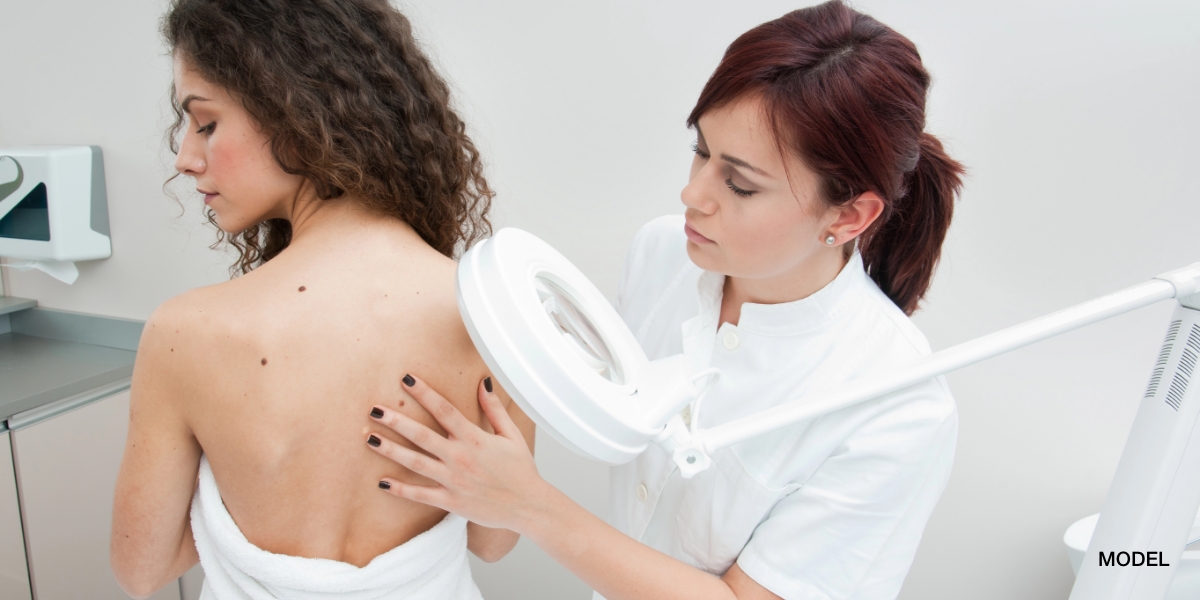Severe acne can leave permanent or long lasting post inflammatory changes to the skin resulting in scars and blemishes. I make a major distinction between a scar which is a permanent alteration of the dermis/epidermis resulting in textural changes on the skin surface and the more temporary changes of a blemish which is a discolored spot on the skin that will eventually return back to the skin’s natural tone. I counsel my patients to not worry about treating scars and blemishes if there is active acne since any work done to treat these areas is counterproductive if new acne lesions continue to form and leave post inflammatory changes. Thus, it is crucial to first send a patient’s acne into remission. Once in remission, the post inflammatory changes can be addressed. Scars almost always have to be treated with a destructive modality. Some scars are depressed in the skin appearing like a pock mark. These occasionally have a tether under the skin which is holding them down. The tether can be released using an 18 gauge needle place underneath the scar to essentially break the tether loose. Topical medicines are almost ineffective at removing scars. Chemical peels are a good method for mild scarring and generally require multiple sessions. For more severe scarring, dermabrasion can be used which is using an abrasive instrument like actual sand paper to smooth down the anesthetized skin. In my opinion, lasers such as the Fraxel laser or a CO2 fractional laser are the best treatment options for acne scarring. I refer my patients needing laser treatment to Dr. Amy Farmer, a board certified dermatologist, in the Woodlands at 281-465-3600. Dark blemishes can best be addressed with a topical bleaching agent such as hydroquinone 4% which is applied nightly to the hyperpigmented area until it is lightened to the patient’s satisfaction. It is important to limit sun exposure while one is attempting to use a hydroquinone as UV exposure can continue to keep the blemish dark. Some hyperpigmentation is deeper in the skin at the dermal level and hydroquinones will not work on this type of post inflammatory hyperpigmentation. Dermal hyperpigmentation eventually resolves on its own with time.
August 28, 2010

Medically reviewed by Anthony J. Perri, M.D.
You May Also Like


Request a Consultation (Sidebar)
Recent Posts
Categories
- Uncategorized (579)
Tags
acne (6)
acne treatment (3)
acne vulgaris (2)
basal cell carcinoma (2)
biopsy (3)
cold urticaria (1)
common skin conditions (11)
dermatologist (15)
dermatology (7)
dr. perri (8)
dry skin (1)
eczema (2)
filiform (1)
health (3)
Herpes (1)
herpessimplex (1)
hives (2)
indentification (1)
keratosis pilaris (1)
Lichen Planopilaris (1)
melanoma (2)
moles (3)
periungual (1)
perri dermatology (10)
prevention (2)
rashes (2)
rosacea (3)
rosacea therapy (2)
skin cancer (6)
skin cancer screening (5)
skin care (2)
skin checks (8)
skin condition (6)
skin conditions (8)
skin damage (2)
skin exam (8)
summertime (3)
sunburn (3)
sunburns (2)
Sunprotection (1)
sunscreen (2)
virus (1)
warts (2)
why perri dermatology (3)
woodlands dermatologist (6)

